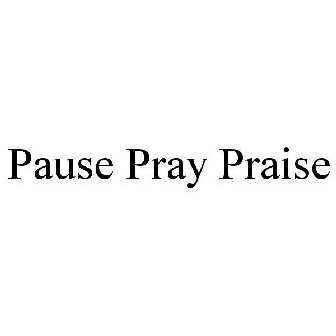As I drove to church this morning, a threefold alliterative command came often to my mind… Pray, Praise and Pause.
I was encouraged again to Pray, Praise and Pause as I read this letter from the Archbishops of Canterbury and York, published in the London Times.
A daily prayer can guide us through lockdown
05/11/2020
Joint article by Archbishop Justin Welby and Archbishop Stephen Cottrell in The Times
In George Orwell’s 1984, Room 101 is a torture chamber in the Ministry of Love. In Room 101, your deepest fears are uncovered, and you are confronted with them. It breaks everyone who is exposed to it. There are very few safe places to reveal our deepest fears. There are almost no safe places to reveal our deepest shame. Most of us hug our most beautiful dreams deeply within ourselves in order to avoid the risk of them being seen and trampled on by others.
The season of Covid risks being a giant, global Room 101. The greatest fears of the nations of the world, collectively and individually, are exposed. It is done in an atmosphere without protection, without safety and without love. Every individual feels the temptation to hunker down, to go deep within themselves and not express too openly what they are thinking.
Hopes, dreams, fears and failures — those things that we want to hide, are so often used against us by the virus in order to diminish our lives.
So where is the place of safety? Where can we be ourselves as we should be?
“Our Father who art in heaven.”
Prayer is the gift of God in which we go to the one who already knows everything about us, loves us more deeply and more profoundly, more extensively than we can ever imagine, and has offered us forgiveness and hope in the life, death and resurrection of Jesus.
One of Jesus’s most distinctive teachings was the intimate use of the word “father” as part of our prayer. Even though this word can be problematic for cultures like ours, its intimacy — it is a family word that roughly translates as Daddy — is beautiful and profound because it claims a relationship with God that can only exist through God’s gift of love to us. Jesus makes intimacy with God possible. When we pray we enter into this divine reciprocity of giving and receiving love.
When we pray, our shames and fears, our dreams and hopes are exposed to light and to love with no fear of repetition, no dread of dismissal, no concern about mockery.
Because it is so intimate, the language of love at its most profound, prayer does not require expertise in order to be real. On the contrary, it requires reality in order for us to become an expert. In our simple, stumbling words to God, hesitant and doubting, we are greeted with the warmest embrace.
Prayer does not require qualifications in theology. In the Eastern Orthodox Church, they say that a theologian is someone who prays. Prayer makes us theologians rather than theology making us those who are good at prayer.
Prayer does not require anything of us except the simple surrender of all our hiding, so that we say what we think. Where we are angry, we express our protest. Where we are bereaved, we express our lament. Where we are joyful, we express our celebration. Where we are worried, we ask for hope. Where we hate, we seek both to be forgiven and to forgive. Where the world is hostile, we seek provision of our daily bread and deliverance from evil.
In this great moment of crisis, the bishops of the Church of England have called the people of England to pray. It has been done before, in 1940 and other times. Those were different times and this country looked very different. But what has not changed, and never will, is the invitation to stop and pray, wherever we are.
In doing so, we offer our hopes and fears and shames to God for this country, for those we love, for those we miss and mourn.
Join us in prayer each day over the next month during lockdown. It can be as simple as saying the Lord’s Prayer or as complicated as you want.
In prayer each of us are offered the divine alternative to Room 101 — for here we, the fearful, vulnerable and broken are held in God’s loving presence. In prayer, we find hope that we ourselves and our nation might be remade.

